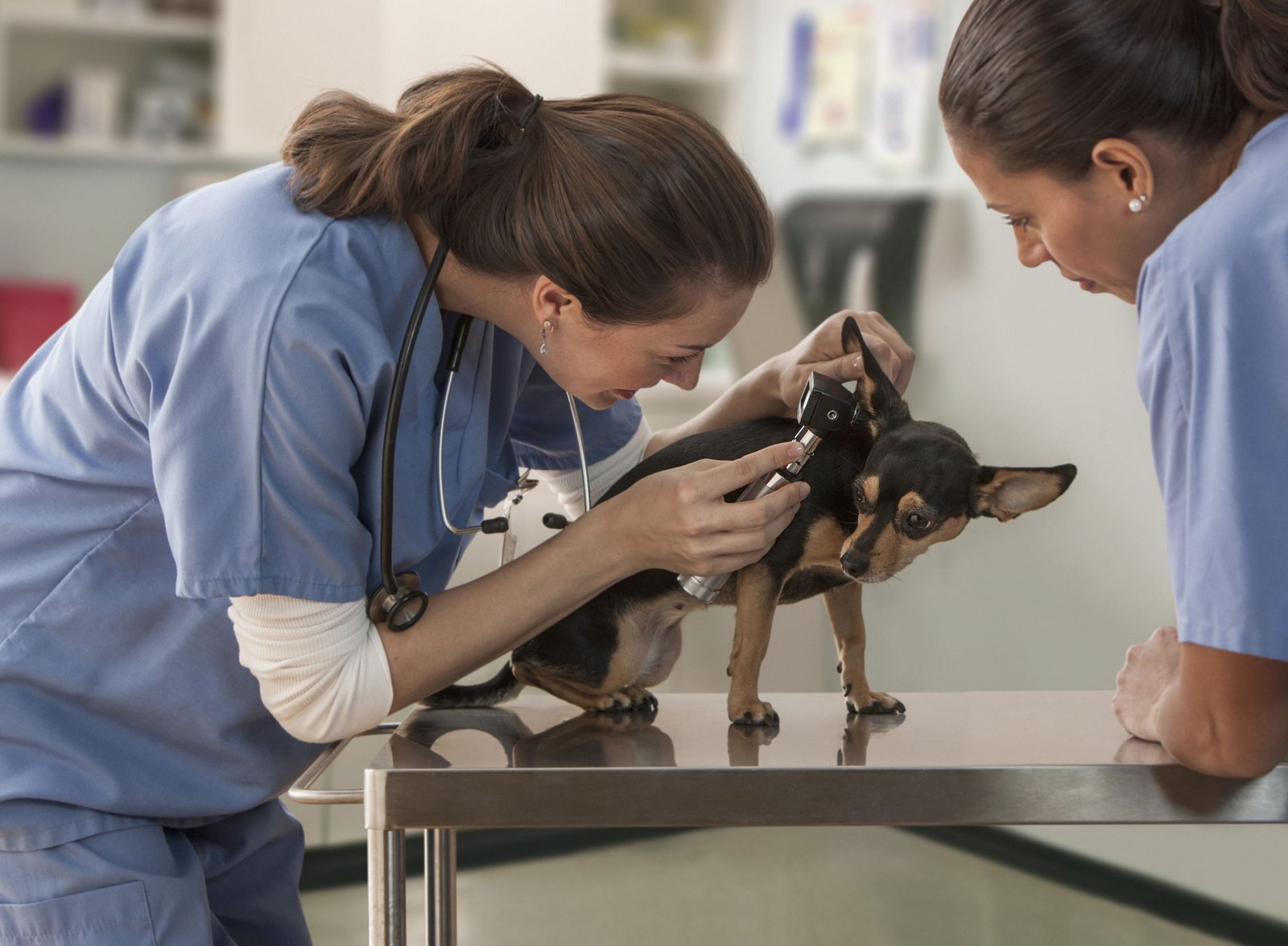A typical day in the life of a veterinarian involves examining animals, diagnosing health issues, treating wounds, performing surgeries, and administering vaccinations. They also communicate with pet owners and provide education on animal care.
A veterinarian’s day may start at the reception desk, attending to administrative tasks, and then transition to assisting in medical procedures and surgeries. They may also have to clean cages, walk dogs, and interact with pet owners throughout the day.
With a diverse range of responsibilities, veterinarians need to possess skills such as problem-solving, compassion, interpersonal communication, analytical thinking, and critical reasoning. The daily routine of a veterinarian is demanding yet rewarding, as they work towards ensuring the well-being and health of animals.
A Day In The Life Of A Veterinarian
A typical day in the life of a veterinarian involves examining animals, diagnosing health issues, performing surgeries, and administering vaccinations. They also interact with pet owners and provide guidance and support. This fulfilling career requires skills such as problem-solving, compassion, and critical thinking.
Start Of The Day
Every day, a veterinarian begins their day by getting ready to provide care and treatment to animals in need. They start by checking their schedule and preparing for the appointments and procedures they have lined up. This involves reviewing medical records, gathering necessary equipment, and ensuring that the clinic or hospital is clean and sanitized for a safe environment.
Appointments Throughout The Day
A typical day for a veterinarian is filled with a variety of appointments. These may include routine check-ups, vaccinations, consultations, and surgeries. During these appointments, the veterinarian examines animals, assesses their health, and diagnoses any problems or illnesses. They may perform tests, administer medications, or advise on preventive care measures to ensure the well-being of their animal patients.
Skills Needed To Become A Veterinarian
Becoming a veterinarian requires a specific set of skills. Firstly, problem-solving skills are crucial in order to diagnose and treat various health conditions in animals. Veterinarians also need strong interpersonal communication skills to effectively communicate with pet owners and educate them about their animal’s health. Compassion plays a significant role as veterinarians must provide empathetic care to both animals and their owners. Analytical skills and critical thinking are necessary for interpreting test results and making informed treatment decisions for animals in their care.
Things To Know About Being A Veterinarian
- Being a veterinarian is not just about cuddling cute animals. It involves dealing with difficult cases, making tough decisions, and sometimes witnessing the loss of animal life.
- It’s a physically demanding job that may require long hours on your feet, especially during surgeries or emergency situations.
- Veterinarians are constantly learning and staying updated on the latest advancements in veterinary medicine to provide the best care for their patients.
- Strong emotional resilience is essential as veterinarians often encounter distressed pet owners and face challenging and emotionally charged situations.
Considerations For Choosing The Career
Choosing to become a veterinarian is a significant decision. Prospective veterinarians should carefully consider the following factors:
- The level of commitment and dedication required to complete the necessary education and training.
- The financial investment, as veterinary school can be costly.
- The emotional demands of the job, including dealing with sick or injured animals and their owners.
- The potential for long working hours and unpredictable schedules.
- The rewards and fulfillment that come from helping animals and making a positive impact on their lives.

Credit: m.youtube.com
The Path To Becoming A Veterinarian
A typical day in the life of a veterinarian involves examining animals, diagnosing health issues, treating wounds, performing surgeries, and vaccinating against diseases. Veterinarians also communicate with pet owners and provide support and guidance.
What Is A Veterinarian?
A veterinarian is a medical professional who specializes in the treatment and care of animals. They examine animals, diagnose illnesses and injuries, and provide medical treatment.
Daily Tasks And Surgeries
On a typical day, a veterinarian performs a variety of tasks to ensure the health and well-being of animals. These tasks may include:
- Examining animals to assess their health and diagnose problems
- Treating and dressing wounds
- Performing surgeries on animals
- Testing for and vaccinating against diseases
How To Become A Veterinarian
Becoming a veterinarian requires a significant amount of education and training. Here is the path to becoming a veterinarian:
- Earn a bachelor’s degree in a related field, such as biology or animal science
- Complete a Doctor of Veterinary Medicine (DVM) program at an accredited veterinary school
- Pass the North American Veterinary Licensing Examination (NAVLE) to become licensed
- Consider pursuing specialized training or residency programs for further specialization
Veterinary Specialties
After becoming a licensed veterinarian, individuals can choose to specialize in a specific area of veterinary medicine. Some common veterinary specialties include:
- Internal Medicine
- Surgery
- Dentistry
- Cardiology
- Oncology
Reasons For Choosing Veterinary Medicine
Many individuals are drawn to a career in veterinary medicine due to their love for animals and the desire to help them. Other reasons for choosing this profession may include:
- The ability to make a positive impact on animal health and welfare
- The opportunity to work in a challenging and rewarding field
- The chance to work with a variety of animals and their owners
Advice For Aspiring Veterinarians
If you are considering a career as a veterinarian, here are some key pieces of advice:
- Gain experience working with animals through internships, volunteer work, or part-time jobs
- Develop strong communication and interpersonal skills, as these are essential for working with clients
- Stay informed about the latest advancements and research in veterinary medicine
- Build a strong support network of mentors and colleagues in the field
- Prepare for the challenges that come with the profession, such as long hours and emotional situations
A Veterinarian’s Daily Routine
Throughout a typical day in the life of a veterinarian, tasks may include examining animals, diagnosing health issues, treating wounds, performing surgeries, and vaccinating against diseases. Additionally, veterinarians may interact with and assist pet owners, clean cages, and walk dogs.
It’s a rewarding career that requires problem-solving skills, compassion, and strong communication abilities.
A day in the life of a veterinarian is filled with diverse tasks, caring for and treating the needs of animals. From the moment they wake up to the time they end their day, veterinarians are dedicated to ensuring the well-being of pets and livestock. Let’s take a closer look at a veterinarian’s daily routine:
Waking Up And Getting Ready
In the early morning hours, veterinarians wake up, refreshed and ready to start their day. They begin by preparing themselves for the busy schedule ahead. They might have a quick breakfast, exercise, and get dressed in their professional attire.
Examining Animals And Treating Wounds
After getting ready, veterinarians head to their clinic or hospital. They start by examining animals that are scheduled for appointments. They carefully assess their health and look for any signs of illness or injury. If they discover wounds, they quickly and skillfully treat them, cleaning and dressing them as needed.
Performing Surgeries
Veterinarians also perform surgeries on animals that require more extensive treatment. This may include spaying or neutering procedures, tumor removals, or orthopedic surgeries. They use their expert knowledge and surgical skills to ensure the safety and well-being of the animals during these procedures.
Testing And Vaccinating Against Diseases
One crucial aspect of a veterinarian’s daily routine is testing animals for diseases and administering vaccinations. They perform various tests to diagnose illnesses accurately and determine the appropriate treatment. Additionally, they vaccinate animals, helping prevent the spread of contagious diseases among pets and livestock.
Euthanizing Pets
While it is a difficult task, veterinarians sometimes have to euthanize pets who are suffering and have no chance of recovery. They approach this responsibility with utmost compassion, ensuring that the pet’s final moments are peaceful and pain-free. It is their duty to provide support to pet owners during these emotional times.
In a nutshell, a veterinarian’s daily routine revolves around caring for animals, diagnosing and treating their ailments, and ensuring their overall well-being. Their dedication and compassion make them essential pillars of the veterinary field.
Skills Needed To Be A Veterinarian
A typical day in the life of a veterinarian requires a range of skills such as problem-solving, interpersonal communication, compassion, analytical skills, and critical thinking. Veterinarians examine animals, diagnose health conditions, perform surgeries, administer vaccinations, and treat wounds.
Being a veterinarian requires a unique set of skills that go beyond the love for animals. It involves problem-solving, interpersonal communication, compassion, analytical skills, and critical thinking. These skills are essential in ensuring the well-being of animals and effective communication with pet owners.
Problem Solving
Veterinarians encounter a wide range of medical issues and must be skilled problem solvers. They need to analyze symptoms, diagnose illnesses, and develop treatment plans. This involves critically evaluating the situation, considering all possible options, and making quick and informed decisions to provide the best care for their patients.
Interpersonal Communication
Effective communication is crucial in the veterinarian’s daily interactions with pet owners and colleagues. Veterinarians must be able to explain medical conditions and treatment options in a clear and understandable manner. They need to empathize with pet owners, address their concerns, and establish trust to ensure pet owners are actively involved in their pet’s care.
Compassion
Compassion is at the heart of being a veterinarian. They must genuinely care for animals and show empathy towards both pets and their owners. Veterinarians often work with sick or injured animals, requiring them to provide comfort and support during difficult times. This compassion helps create a positive and nurturing environment that promotes healing and overall well-being.
Analytical Skills
Veterinarians need strong analytical skills to evaluate complex medical cases. They must gather information, interpret lab results, and analyze symptoms to reach accurate diagnoses. These skills enable them to determine the most appropriate treatments and course of action for each animal, taking into account potential risks and benefits.
Critical Thinking
Being a veterinarian requires the ability to think critically and make sound decisions. They must evaluate different treatment options, assess potential outcomes, and consider the best interests of the animal. Critical thinking allows veterinarians to adapt to challenging situations and provide optimal care, even in high-pressure environments.
A veterinarian’s day is filled with a diverse range of tasks, from examining animals, performing surgeries, administering treatments, and educating pet owners. The skills mentioned above are essential in successfully navigating the many challenges and responsibilities that come with this rewarding profession.
Challenges And Rewards Of Being A Veterinarian
A typical day in the life of a veterinarian is filled with challenges and rewards. They examine animals, diagnose problems, perform surgeries, and vaccinate against diseases. While the work can be demanding, the satisfaction of helping animals and making a difference in their lives makes it all worthwhile.
Emotional Stress And Dealing With Sick Animals
Being a veterinarian is not just about cuddling cute pets all day. One of the biggest challenges that veterinarians face is dealing with the emotional stress of caring for sick animals. They often have to witness animals in pain and distress, which can take a toll on their mental well-being. Additionally, veterinarians also have to communicate with pet owners who are anxious and worried about their beloved companions. This requires strong emotional intelligence and the ability to provide reassurance and empathy in difficult situations. It’s important for veterinarians to have healthy coping mechanisms in place to manage the emotional stress that comes with the job.Work Environment And Schedule
The work environment of a veterinarian can vary depending on their specialization. Some may work in private clinics, while others may be employed in animal hospitals or research institutions. Regardless of the setting, veterinarians often work long and irregular hours. They may be required to be on call during emergencies, which means they need to be available 24/7 to attend to critical cases. This can disrupt their work-life balance and make it challenging to plan personal activities. However, the flexible schedule also allows veterinarians to have a greater sense of fulfillment as they are able to provide immediate care to animals in need.The Impact Of Working With Animals
Working with animals can be incredibly rewarding for veterinarians. They have the privilege of playing a vital role in ensuring the health and well-being of their patients. Veterinarians get to witness the joy and happiness on the faces of pet owners when their furry friends make a speedy recovery. They also form strong bonds with animals, creating a sense of fulfillment and purpose in their work. The positive impact they make on the lives of both animals and their owners is immeasurable and can bring a deep sense of satisfaction to veterinarians.Financial Aspects Of The Profession
While the financial aspects of being a veterinarian may not be the primary motivation for entering the profession, it is an important consideration. Veterinarians invest significant time and money in their education and training, with the cost of veterinary school being substantial. However, the earning potential of veterinarians can be rewarding. According to the Bureau of Labor Statistics, the median annual wage for veterinarians was $95,460 in May 2020. Specializations, experience, and location can also impact earning potential. It’s important for veterinarians to carefully manage their finances and ensure they are adequately compensated for their expertise and dedication.
Credit: www.briarhillvets.ie

Credit: petfocus.ca
Frequently Asked Questions Of A Typical Day In The Life Of A Veterinarian
What Do Veterinarians Do On A Typical Day?
Veterinarians examine animals, diagnose health problems, treat wounds, perform surgeries, and administer vaccines. They also interact with pet owners, provide animal care education, and assist in laboratory procedures.
What Is A Typical Day In The Life Of A Vet Assistant?
A vet assistant’s typical day consists of assisting at the reception desk, holding animals for vaccinations, and performing office duties. They also clean cages, walk dogs, and provide assistance to pet owners throughout the day.
What Is A Day In The Life Of A Veterinary Technician?
A day in the life of a veterinary technician involves assisting in surgeries, exams, and lab procedures. They handle equipment, restrain animals, monitor vitals, and provide care and education to pet owners. They work under the supervision of a veterinarian.
Is It Stressful To Work As A Veterinarian?
Working as a veterinarian can be stressful due to the need to assess and treat animals’ health issues, perform surgeries, and handle emergencies. It requires problem-solving skills, compassion, and the ability to communicate with pet owners. However, the rewarding nature of helping animals can outweigh the stress.
Conclusion
A typical day in the life of a veterinarian is filled with various tasks and responsibilities. From examining animals to diagnosing and treating their health issues, performing surgeries, and vaccinating against diseases, veterinarians play a crucial role in animal care.
They also interact with pet owners, providing guidance and education. With skills like problem-solving, compassion, and critical thinking, veterinarians navigate through their day with passion and dedication to ensure the well-being of animals. It’s a rewarding career for those aspiring to make a difference in the lives of animals and their owners.

